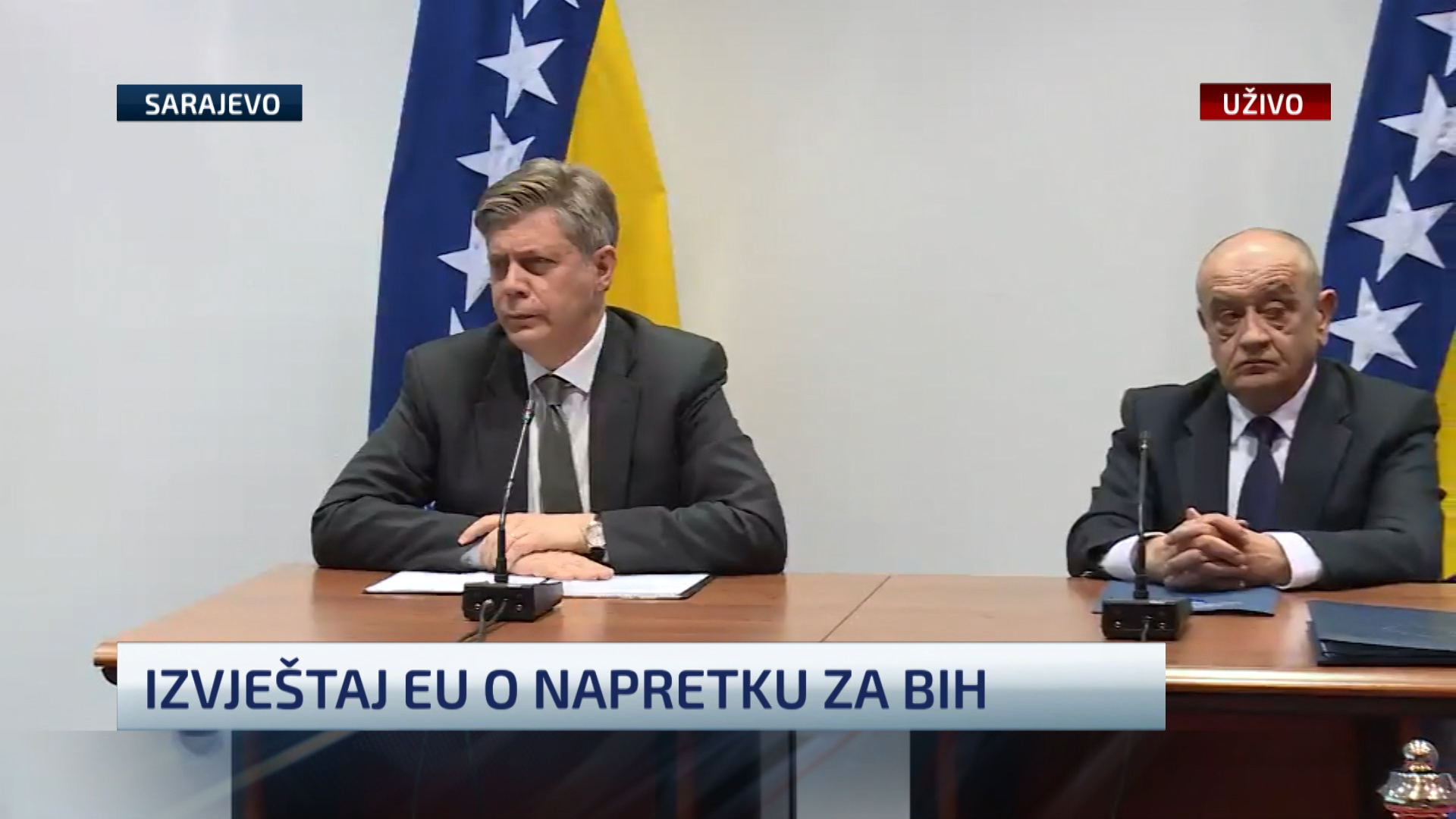
Bosnia has made some progress in regard to human rights and minorities issues and economic reforms, but none at all in regard to its inefficient public administration, the 2018 European Commission (EC) Progress Report for Bosnia notes.
Head of the EU Delegation to Bosnia, Lars-Gunnar Wigemark, handed the report to Finance Minister Vjekoslav Bevanda on Wednesday.
The report is shorter than those from previous years, as the EC is currently analyzing more than 20.000 pages of answers to the EC Questionnaire, based on which the Commission will form its opinion on Bosnia’s EU membership application.
Although some progress was achieved on human rights and minorities issues in the country, “strategic legal, institutional and policy frameworks for the observance of human rights are still in need of substantial improvement,” Wigemark said.
This includes freedom of expression and from political pressure, as “intimidation towards journalists continued during the reporting period, including physical and verbal attacks,” he said.
But in the past 18 months since the last EC Progress Report for Bosnia was published, there has been no progress in regard to reform of the inefficient public administration in the country, the report states. Although a country-wide reform strategy had been developed, it still has not been adopted yet.
“Further fragmentation of the civil service, in particular in the federation entity and at cantonal levels, increased the risk of a politicization of public administration,” Wigemark stressed.
There has been progress in regard to economic reforms, but the report notes that Bosnia “is still at an early stage of establishing a well functioning market economy,” Wigemark said.
He named improvements in macroeconomic indicators, the business environment and the financial sector.
“However, the weak rule of law and a fragmented and inefficient public administration also leads to poor business environment,” he said.
A major concern for the EC is that Bosnia has not yet adopted changes to the state Law on Criminal Procedures.
The Constitutional Court declared some the law’s articles addressing the process of granting immunity from legal prosecution, physical search and special investigative procedures unconstitutional in 2016 and gave lawmakers six months to adopt adequate changes, but this has not happened yet. If left unchanged, the Constitutional Court could will declare the articles illegal. This could jeopardize hundreds of police investigations Bosnia’s Intelligence Agency and police agencies had been conducting throughout the years.
“Any revision of this law should be in line with international standards and should not undermine the ability of institutions to tackle serious organized crime and corruption, including high level cases of corruption,” Wigemark said.
Apart from these fundamentals, Wigemark expressed concerns in regard to Bosnia’s Election Law, which, if left unchanged, could result in the country’s upcoming October elections to be declared invalid.
Two years ago, the Constitutional Court ruled that some provisions of the Election Law were inconsistent with the Constitution. Authorities have since then failed to act in the legally allowed time frame. The EC urged political leaders to “assume their responsibility and show willingness to compromise on the question of the electoral reform,” as well as to implement a 2010 Constitutional Court decision in regard to elections in the town of Mostar, where the last elections took place in 2008.
Finance Minister Vjekoslav Bevanda thanked Wigemark, saying, “the basic remarks that the EC noted are of a political nature,” and that Bosnia is also well aware of those issues.
“However, positive examples such as the Coordination Mechanism which enabled us to present answers to the European Questionnaire should not be ignored,” he said. “This proved that we can speak with the European Union with one voice.”
Kakvo je tvoje mišljenje o ovome?
Učestvuj u diskusiji ili pročitaj komentare





 Srbija
Srbija
 Hrvatska
Hrvatska
 Slovenija
Slovenija



























































